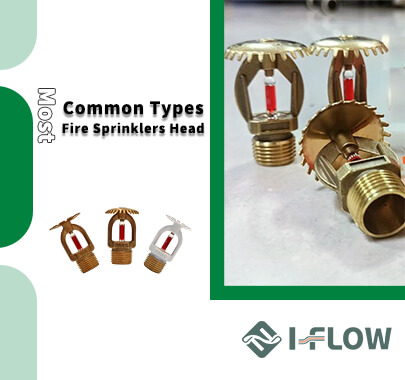Knife gate valves are crucial in specific industrial applications, particularly where thick, abrasive, or slurry-based materials need to be controlled. Their simple yet effective design makes them the go-to choice for industries that require a valve capable of efficiently handling heavy-duty fluids and solids. With a sharp-edged gate resembling a knife, these valves can slice through dense materials, providing excellent isolation and flow control.So, when exactly should you opt for a knife gate valve? Let’s break it down.
1. Handling Slurries and Thick Liquids
One of the primary reasons to choose a knife gate valve is its ability to manage slurries and thick liquids. These valves are designed to cut through materials like sludge, pulp, and slurry, making them ideal for systems that regularly transport such materials.
Mining: Knife gate valves are essential in mining operations where tailings, slurries, and other thick materials need to be controlled. They are used in pipeline systems to regulate the flow of these substances, preventing blockages.
Wastewater Treatment: In plants that deal with sludge, knife gate valves are often employed to manage wastewater flow efficiently.
Why It’s Useful: Their sharp-edged gate can easily slice through and block flow of thick, solid-laden liquids, ensuring smooth operation and preventing clogs.
2. Isolation in Heavy-Duty Applications
Knife gate valves are an excellent option for isolation applications where a tight seal is required. Unlike traditional gate valves, which may struggle with dense fluids, knife gate valves excel at creating a full shut-off even in the presence of abrasive or high-viscosity materials.
Pulp and Paper Industry: In systems where slurry or pulp needs to be isolated or transported, knife gate valves ensure proper isolation without damaging the flow path or causing blockages.
Oil and Gas: Knife gate valves are used for isolating lines in upstream and downstream operations, where harsh materials are common.
Why It’s Useful: The knife gate’s design ensures a strong, reliable seal, effectively stopping flow even in demanding conditions.
3. Abrasive or Corrosive Materials
Knife gate valves are often used in industries where valves are exposed to abrasive or corrosive materials. The sharp, durable gate can withstand wear and tear caused by solid, abrasive materials, while the valve’s construction helps resist corrosion from aggressive chemicals.
Mining and Cement: Knife gate valves are used to control the flow of abrasive materials like sand, gravel, and crushed minerals.
Chemical Processing: When dealing with aggressive chemicals or slurry mixtures, knife gate valves can maintain operational integrity.
Why It’s Useful: Knife gate valves are built with materials resistant to corrosion and erosion, making them a practical solution for high-wear environments.
4. On/Off Control for Bulk Material Flow
In industries that require bulk material flow control, knife gate valves are often the valve of choice due to their reliable on/off function. These valves are perfect for quick isolation of large sections of pipelines without interrupting the entire system.
Food Processing: Knife gate valves can isolate product lines where bulk food ingredients such as flour, grain, or powders are transported.
Agriculture: In large-scale irrigation or drainage systems, these valves can efficiently manage water flow while handling sediment or other debris.
Why It’s Useful: The knife gate’s straightforward operation allows for quick and effective isolation, helping to prevent interruptions during production processes.
5. Cost-Effective and Space-Saving Isolation
Knife gate valves are not only practical but also cost-effective and space-saving. These valves are designed with minimal components, making them less expensive than more complex valve types. Their compact size also makes them an excellent choice for installations with limited space.
Water Treatment: In water treatment plants, knife gate valves are used to control slurry lines or isolate different stages of the treatment process, all while saving space and reducing costs.
Bulk Material Handling: For industries requiring bulk material isolation, knife gate valves offer a budget-friendly solution without compromising on performance.
Why It’s Useful: Their affordability and compact design make them an attractive option for industries operating within tight budgets or limited space.
6. Frequent Operation and Cyclic Use
Knife gate valves are built to endure frequent opening and closing cycles without compromising performance. These valves are perfect for operations where regular cycling of the valve is required to maintain flow control.
Automated Systems: In automated industrial processes, knife gate valves frequently open and close to regulate material flow, making them an excellent choice for high-cycle environments.
Power Plants: In power generation systems, where valves may need to be cycled on and off to control waste streams or fuel delivery, knife gate valves ensure consistent, reliable operation.
Why It’s Useful: Knife gate valves are engineered to handle multiple cycles, offering long-term performance without failure.
7. Tough Operating Conditions
Whether dealing with high-pressure, high-temperature, or severe service conditions, knife gate valves are designed to handle extreme environments. The robust construction and durable materials allow them to perform effectively in harsh conditions.
Power Generation: Knife gate valves are commonly used in thermal power plants to isolate high-temperature pipelines carrying steam or other fluids.
Chemical Plants: In environments where valves need to withstand both corrosive materials and extreme pressures, knife gate valves prove to be reliable.
Why It’s Useful: The durability of the knife gate valve ensures its longevity and performance even in the most demanding conditions.

.png)
 en |
en |














